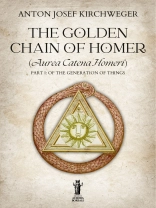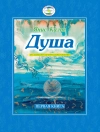As the great esotericist and freemason Manly Palmer Hall pointed out, the Golden Chain of Homer comes originally from the Iliad which refers to the Golden Chain that connects the Supreme Deity to all of manifestation. In 1731, it was written about in Anton Josef Kirchweger’s book by the same name. The book relates a human being’s spiritual development to the steps in the alchemical process. Besides alchemy, Hall ties in Hermeticism, Platonism, and Neoplatonism along with the Divine Purpose of Life as symbolized by the Ouroboros.
We have very little information on the life of Anton Josef Kirchweger. We know that he was German and that, according to Willy Schrödter, he died on February 8, 1746. He was the author of the influential German hermetical book
Aurea Catena Homeri Oder, Eine Beschreibung von dem Ursprung der Natur und Natürlichen Dingen (
The
Golden Chain of Homer
, or A Description of Nature and Natural Things), better known as
Aurea Catena Homeri.
The book was read by Pietists and later influenced the young Goethe. It was first published in Leipzig in 1723, in the German language, followed by other editions: 1723, 1728, 1738 and 1757 (Latin edition). Another Latin version was issued at Frankfurt in 1762. Sometime in the late eighteenth century Sigismund Bacstrom translated parts of the work into English. In 1891, part of the translation was published in the Theosophical Society journal
Lucifer.
Today we offer our readers the first part of the Kirchweger’s book, entitled
Of the Generation of things, in the English translation edited by Sigismund Bacstrom.
Anton Josef Kirchweger
The Golden Chain of Homer (Aurea Catena Homeri) [EPUB ebook]
Part I: Of the Generation of Things
The Golden Chain of Homer (Aurea Catena Homeri) [EPUB ebook]
Part I: Of the Generation of Things
Compre este e-book e ganhe mais 1 GRÁTIS!
Língua Inglês ● Formato EPUB ● Páginas 59 ● ISBN 9791255047353 ● Tamanho do arquivo 0.6 MB ● Editora Edizioni Aurora Boreale ● Publicado 2024 ● Carregável 24 meses ● Moeda EUR ● ID 10092539 ● Proteção contra cópia sem











